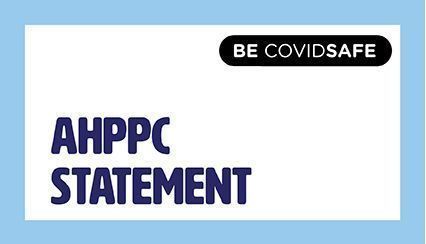
AHPPC recognises the importance of planning for re-opening Australia when it is safe to do so and the limitations imposed by requirements for quarantine of international arrivals. The current outbreaks, consisting of numerous clusters has highlighted the ease with which COVID-19, especially Variants of Concern, can lead to sustained outbreaks and the ease with which outbreaks can cross jurisdictional lines. International experience shows that outbreaks escalate quickly without strong public health actions and readily lead to large number of cases, severe illness and deaths in populations with a low level of vaccination. The threat of overwhelming the Australian health care system remains at present as has been been demonstrated by modelling previously presented to National Cabinet. It should be noted that any increase in the number of arrivals increases the risk of incursions and therefore outbreaks, irrespective of quarantine model.
Modelling commissioned by the Commonwealth Department of Health uses an outcome of an outbreak that emerges from 5 cases in the community, a 'seeding event', and determines the risk in different scenarios. The current modelling of management of vaccinated arrivals applies to the risk from an Alpha variant of COVID-19, a variant that is approximately 50% more transmissible that the original virus. Since the modelling was commenced, the recent incursions of the Delta variant have followed the international experience that this variant is 40-80% more transmissible than that of Alpha1. This means that each incursion is harder to contain with public health response. AHPPC advises revision of the quarantine risk modelling to incorporate the Delta variant will be undertaken, dependent on considerations by the Australian Technical Advisory Group on Immunisation about the impact of vaccines on the transmissibility of this variant.
The modelling considering the alpha variant and technical advice supplied by the Communicable Diseases Network Australia (CDNA), suggest modified quarantine programs for vaccinated international arrivals are feasible.
National Cabinet agreed on 2 July 2021 that alternative quarantine would be trialled in pilot programs. AHPPC recommends that modified quarantine arrangements involving a 14 day home quarantine period for vaccinated persons who have been in low/medium risk countries be used in a pilot. Risk stratification for selection to home quarantine should occur and will depend on a country risk assessment, including the disease epidemiology of the country of travel, the proportion of cases among international arrivals and the suitability of the residence for effective quarantine. Home quarantine has been implemented for selected workers in some jurisdictions.
Because of the complexity of vaccination certification, AHPPC recommends initial pilot programs of modifications should include only individuals who have been vaccinated in Australia before their travel and have evidence of full vaccination on the Australian Immunisation Register. AHPPC will explore the feasibility of expressions of interest from Australians needing to travel overseas who could participate in home quarantine on return. Moving forwards other alternative methods of quarantine of international arrivals will also be explored, although 7 day quarantine periods are not currently recommended.
AHPPC notes the pilot programs will be conducted using the expertise of the CDNA to ensure the risk to the population and individuals involved with alternative quarantine are minimised. The pilot programs will need to encompass processes to determine evidence of suitable and full vaccination, testing during quarantine, transport of individuals to quarantine and methods to ensure high compliance. AHPPC notes that the timing and location of these pilot quarantine programs will depend on the current situational level of concern for existing outbreaks of COVID-19 to ensure the capability of public health response. Results of the pilot programs will be assessed by the committee.
Based on technical advice from the CDNA, AHPPC notes that in future outbreaks within Australia, recommendations for the public health management of individuals who are casual contacts of a case but are fully vaccinated may be less restrictive. AHPPC notes this will be more feasible to implement in small outbreak response settings. If large scale movement restrictions are in place, it is difficult to envisage a method to ensure compliance with movement restrictions in unvaccinated persons but not vaccinated individuals.
1Ninety-second SAGE meeting on COVID-19, 09 June 2021






